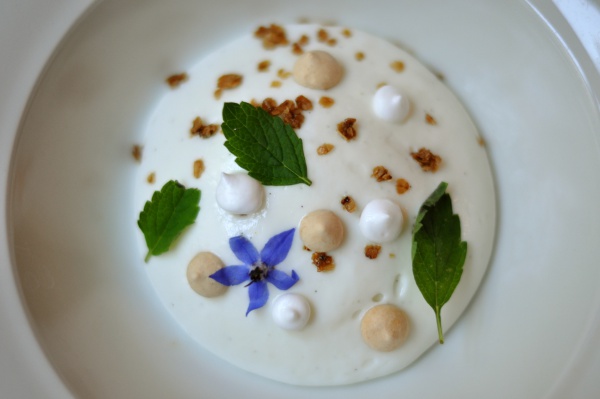Facts About Ymer
Ymer is a traditional Danish fermented milk product that has been popular since 1930. It is made by fermenting whole milk with a specific bacterial culture called Lactococcus lactis. This fermentation process converts milk sugar into lactic acid, which thickens the milk, imparts a tangy flavor, and extends its shelf life.
Named after Ymir, a giant from Norse mythology, ymer is produced by adding a starter culture to skimmed milk. The mixture is maintained at 18°C until it reaches a pH of 4.6. At this point, the whey is drained off, and cream is added. This method yields a product rich in solids and protein while maintaining a fat content of 3.5%, akin to whole milk.
Ymer is highly versatile and can be incorporated into a range of dishes, including breakfasts, snacks, desserts, dressings, and even in baking. A traditional way to enjoy ymer is with "ymerdrys" a topping made from breadcrumbs of rugbrød (rye bread) mixed with brown sugar.
Nutritionally, one deciliter of ymer contains 146 kJ (35 kilocalories), making it a relatively light yet satisfying option.

 Germany
Germany